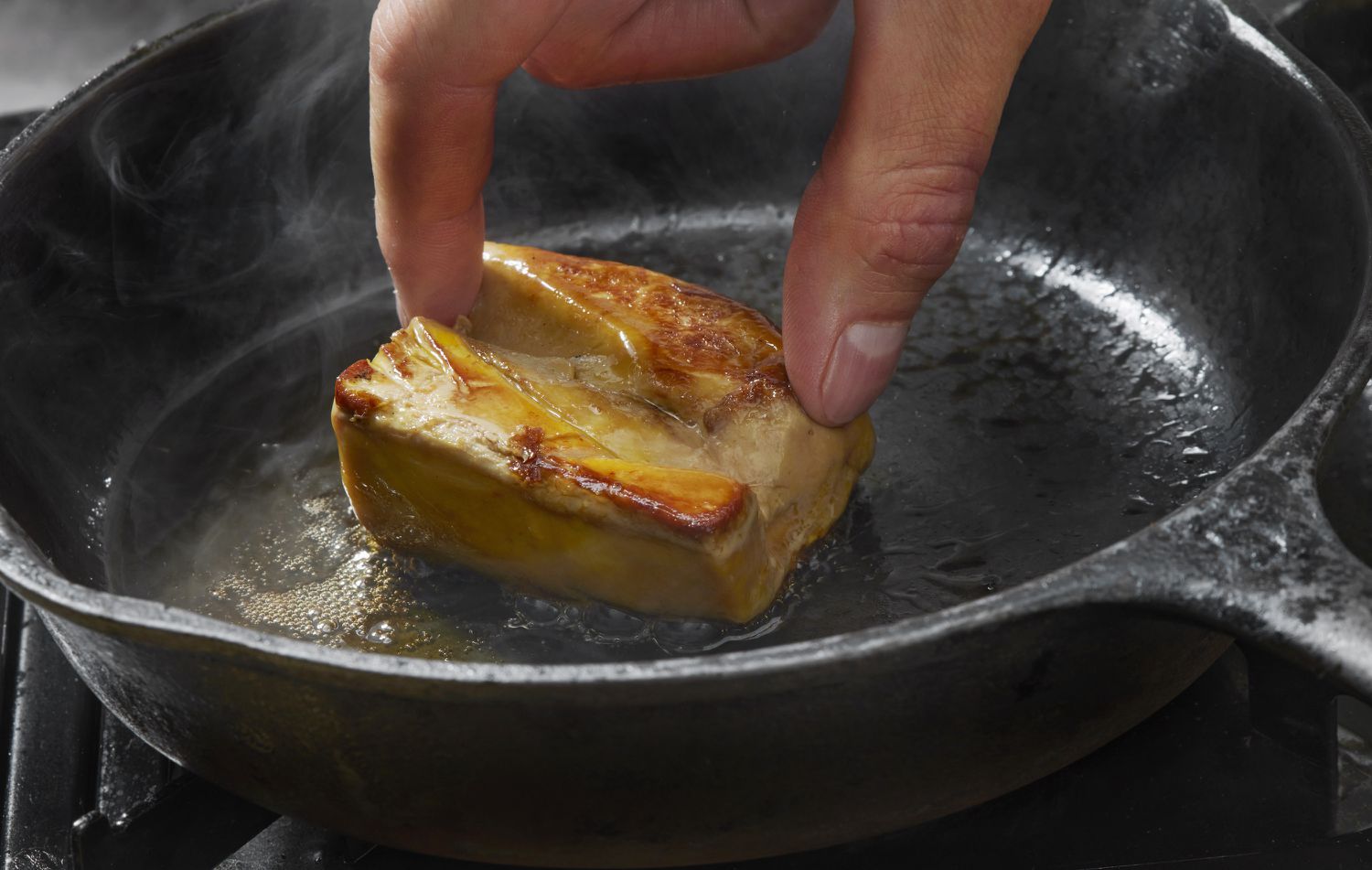One of his first decrees takes a bold step against animal cruelty.
Updated November 25, 2022 08:56AM EST
The new King of England, Charles III, has announced that foie gras will not served in any royal residences. A letter sent to the PETA animal rights campaign group, dated November 10 and signed by Tony Johnstone-Burt, Master of the King’s Household, stated that “foie gras is not purchased by the Royal Household nor served in Royal Residences, and there are no plans for this policy to change.”
Animal rights activists are rejoicing, as are many meat-eaters who consider foie gras production to be uniquely cruel. Considering that its nickname is “torture in a tin,” it should come as no surprise that foie gras is a controversial product. Made from the fattened liver of a goose or duck, the luxury food has been as highly praised for its silky, rich taste and texture as it has been reviled for the cruelty required to make it.
Geese and ducks are subjected to a process called gavage, where they are force-fed multiple times a day through a tube that goes directly to their stomachs. The liver can grow up to 600% of its normal size in less than three weeks. Activists say this causes pain to the animals and makes it hard for them to walk or breathe properly.
The state of California and New York City have chosen to ban foie gras outright, making both production and sales illegal. In the United Kingdom, where King Charles lives, foie gras cannot be produced, but it is not illegal to import or sell it. There was a proposal to ban importations following Brexit, but that looks increasingly unlikely to happen.
King Charles’ stance should not come as a surprise. He has long been an advocate of higher welfare standards in animal agriculture, as well as organic farming, and has not allowed foie gras consumption on his own properties for the past decade. His latest announcement simply implements those standards more broadly.
PETA is delighted by the news—although it should be noted that an official announcement has not been made by Buckingham Palace, apart from this letter. The group has sent King Charles a basket of “faux gras”—a luscious vegan alternative—as a thank you and, presumably, as proof that one can still indulge without harming animals in the process.
Says Elisa Allen, PETA’s vice-president of programs, “Video footage of birds being painfully force-fed is enough to make anyone lose their lunch. But [vegan chef] Alexis Gauthier’s game-changing faux gras—which is served at his fine-dining restaurant Gauthier Soho—is luxurious, indulgent, and cruelty-free. PETA encourages everyone to follow the king’s lead and leave foie gras off the menu this Christmas and beyond.”
Charles’ decision is a decent one, despite pertaining to a rather niche luxury market that does not affect the vast majority of people. Even committed meat-eaters commend him for it, voicing support on social media. One commenter on Twitter said, “Good. The practice of making foie gras is evil. Even as a meat eater I wouldn’t touch it.” British biologist and writer Richard Dawkins chimed in: “Well done, Sir! Force feeding of geese and ducks is indefensible.”
A Perigord goose bred for foie gras productions roams around a farm in Dordogne, France.
Pierre Longnus / Getty Images
Some critics, however, point out that the royal family should take a closer look at how small-scale producers operate before jumping to the conclusion that all foie gras is made in an equally torturous manner. As J. Kenji López-Alt countered in a fascinating op-ed for Serious Eats several years ago, “Foie gras production should be judged not by the worst farms, but by the best.” He goes on to explain how there are key physiological features in ducks and geese that make foie gras production less horrifying than it sounds. (It’s worth a read for anyone wanting to delve deeper.)
In the meantime, PETA is hoping that Charles’ pro-animal stance will extend to rejecting ermine-trimmed robes at his upcoming coronation ceremony. That remains to be seen.

